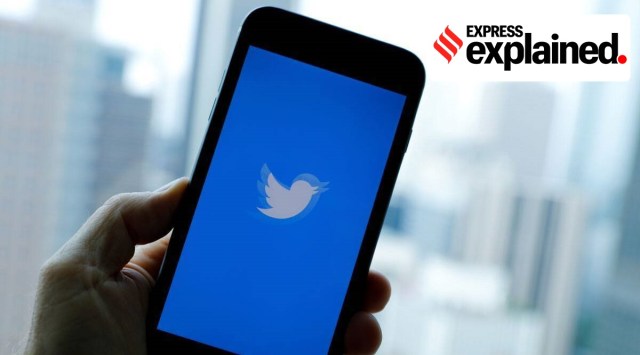Twitter removes protection against deadnaming: What is this practice, and the row around it
On Monday, Twitter also announced that it will only put warning labels on some tweets that might violate its rules against hateful conduct. Earlier, the tweets were removed from the platform.
 This isn’t the first time that concerns related to the safety of marginalised groups on Twitter have surfaced. (Photo: Reuters)
This isn’t the first time that concerns related to the safety of marginalised groups on Twitter have surfaced. (Photo: Reuters) Twitter has removed a policy that prohibited misgendering or deadnaming of transgender people on the social media platform, according to the Associated Press. The move has sparked a row as many believe that the safety standards that the social media platform once afforded to various marginalised groups are being compromised under the stewardship of Elon Musk.
According to Forbes, Twitter’s “hateful conduct policy” used to read: “We prohibit targeting others with repeated slurs, tropes or other content that intends to dehumanise, degrade or reinforce negative or harmful stereotypes about a protected category. This includes targeted misgendering or deadnaming of transgender individuals.”
As per the report, around 10 days ago, the last line was removed. It had been first introduced in 2018.
On Monday, Twitter also announced that it will only put warning labels on some tweets that might violate its rules against hateful conduct. Earlier, the tweets were removed from the platform.
Speaking to AP, Sarah Kate Ellis, president of an LGBTQ advocacy group called GLAAD, said, “Twitter’s decision to covertly roll back its longtime policy is the latest example of just how unsafe the company is for users and advertisers alike… This decision to roll back LGBTQ safety pulls Twitter even more out of step with TikTok, Pinterest, and Meta, which all maintain similar policies to protect their transgender users at a time when anti-transgender rhetoric online is leading to real-world discrimination and violence.”
What is deadnaming and why is it harmful?
A deadname is essentially the name that a trans, non-binary, and/or gender-expansive person was called before they adopted a more self-affirming name. The act of, intentionally or not, calling a trans, non-binary, and/or gender-expansive person by the deadname is known as deadnaming, which can lead to adverse consequences.
“Deadnaming is harmful because refusing to use a person’s chosen name or pronouns is a form of transphobia or cissexism. Cissexism can contribute to mental health conditions, such as depression and suicidality. It can also lead to physical and verbal assault and abuse.,” Medical News Today reported.
Moreover, deadnaming not only invalidates someone’s true identity but also may reveal information about the sex assigned to them at birth that the person concerned may not want anyone to know — this might result in the person being harassed, discriminated against or assaulted.
Has Twitter become less safe for users from marginalised communities?
This isn’t the first time that concerns related to the safety of marginalised groups on Twitter have surfaced.
In December 2022, after the social media platform suddenly announced to dissolve its Trust and Safety Council — an advisory group consisting of almost 100 civil, human rights and other organisations that sought to address child exploitation, suicide, self-harm and hate speech on the platform — Amnesty International took cognizance of the matter.
Deputy Director for Amnesty Tech Joe Westby at the time said, “Flippantly dissolving an independent advisory body that was set up to help Twitter users feel safe when expressing themselves online is only going to exacerbate the rampant issues of abuse and harassment on the social media platform. Twitter’s decision to dissolve the safety council harms efforts to protect the right to freedom of expression for women and marginalised groups, and to safeguard children from harm.”
A report published by the BBC in March this year quoted several Twitter insiders who said since Musk has taken over the company, it is no longer able to protect users from “trolling, state-co-ordinated disinformation and child sexual exploitation”.
“It shows that tens of thousands of new accounts have been created since Mr Musk took over, which then immediately followed known abusive and misogynistic profiles – 69% higher than before he was in charge,” it added.
(With inputs from AP)
- 01
- 02
- 03
- 04
- 05






































